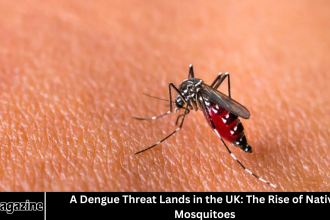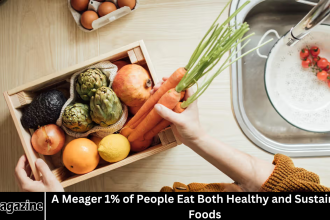For decades, the relationship between Britain’s rural communities and Westminster has been strained. From the upheavals of Brexit and the subsequent trade deals to the perceived urban-centric focus of environmental policies, a deep-seated distrust has taken root.
- Why Animal Health is the Linchpin
- A Policy Blueprint: From Words to Action
- The Political Calculus: Why This Works
- Frequently Asked Question
- Why is a Labour MP focusing on animal health instead of other rural issues like broadband or housing?
- What specific animal health issues are they referring to?
- How exactly does improving animal health rebuild “trust”?
- Isn’t this just for farmers? How does it help the wider rural community?
- What concrete policies or actions are being proposed?
- How does this align with environmental and net-zero goals?
- Is this a shift in the Labour Party’s traditional approach to rural affairs?
- Conclusion
Against this backdrop, a compelling argument is emerging from an unexpected quarter: to heal this rift, the government must first look to the health of the nation’s livestock.
More Read: A Dengue Threat Lands in the UK: The Rise of Native Mosquitoes
The Trust Deficit: Understanding the Chasm
Before exploring the solution, it’s crucial to diagnose the problem. The trust deficit between rural communities and policymakers is multifaceted.
Many farmers and rural business owners feel their way of life is misunderstood, their economic challenges underestimated, and their voices marginalised in national conversations.
Key grievances include:
-
Economic Pressures: Volatile market prices, rising input costs for feed and fuel, and labour shortages create a precarious financial reality.
-
Policy Whiplash: Rapid changes in agricultural subsidies, with the phasing out of the Basic Payment Scheme (BPS) and the uncertain rollout of Environmental Land Management (ELM) schemes, have created anxiety and uncertainty.
-
Regulatory Burden: Perceptions of complex, often contradictory regulations from DEFRA and other agencies can feel stifling and disconnected from on-the-ground realities.
-
Cultural Misunderstanding: A growing urban-rural cultural divide leads to policies that sometimes seem to prioritise metropolitan environmental ideals over rural economic survival.
This accumulation of frustrations has bred a deep cynicism towards political promises. It is into this context that the argument for animal health as a trust-building measure is made.
Why Animal Health is the Linchpin
The Labour MP’s argument is powerful in its simplicity and practicality. Focusing on animal health and welfare is a policy area that is universally valued within rural communities, demonstrably impactful, and devoid of the ideological baggage that often stymies other discussions.
It is a tangible issue where government action can yield clear, positive results.
1. A Shared Priority and Common Ground
For any farmer, the health of their livestock is paramount. It is not just an economic asset; it is a matter of pride, skill, and daily responsibility.
A policy platform that prioritises preventing disease, supporting veterinary care, and improving biosecurity speaks directly to the core concerns of those working on the land. It demonstrates that the government understands and respects their primary occupation.
2. Economic Resilience Begins with Healthy Stock
The connection between animal health and farm profitability is direct and undeniable. Outbreaks of diseases like Bovine Tuberculosis (bTB), Avian Influenza, or Foot and Mouth can be devastating, leading to compulsory slaughter, movement restrictions, and massive financial losses.
By investing in robust prevention, surveillance, and control programmes, the government can directly bolster the economic stability of the agricultural sector. This is a form of support that is both practical and welcome.
3. The One Health Connection: Animals, Humans, and the Environment
The concept of “One Health” – the interconnectedness of human, animal, and environmental health – provides a powerful, science-backed rationale for this focus.
A failure in animal health can directly impact public health through zoonotic diseases (diseases that jump from animals to humans) and food security. It also affects environmental health, as diseased animals are a less efficient use of resources, potentially leading to a higher environmental footprint.
By championing animal health, a government can simultaneously address:
-
Food Security: Healthier animals produce more and safer food.
-
Public Health: Reducing the risk of pandemics originating from livestock.
-
Environmental Goals: Efficient livestock systems with healthy animals can have a lower methane and nitrogen output per unit of food produced.
This holistic approach makes animal health a strategic national priority, not just a rural one.
A Policy Blueprint: From Words to Action
For this vision to be credible, it must be backed by concrete policy proposals. The Labour MP outlined several key areas where action could rebuild trust:
1. A New Deal on Bovine TB (bTB)
The bTB crisis is perhaps the most potent symbol of the failure of successive governments to manage a complex animal health issue. The current strategy, involving contentious badger culls, has been deeply divisive and has not eradicated the disease.
A trust-building approach would involve:
-
Accelerating Vaccine Development: Significantly increased funding for the development and deployment of both cattle and wildlife vaccines.
-
Improved Testing: Investing in more accurate, faster diagnostic tests to catch infections earlier.
-
Fair and Timely Compensation: Ensuring farmers are compensated fairly and promptly for slaughtered animals, reducing the financial devastation of an outbreak.
-
Collaborative Strategy: Working with farmers, vets, and wildlife groups to create a cohesive, science-led strategy, moving away from top-down, politically-driven measures.
2. Strengthening the Veterinary Frontline
Rural areas are facing a shortage of large-animal veterinarians, which undermines disease surveillance and animal welfare.
Policies to address this could include:
-
Veterinary Student Grants/Bursaries: Offering financial incentives for students committing to work in large-animal practice in under-served rural areas for a set period.
-
Support for Veterinary Practices: Helping practices with business rates or providing grants for modern equipment to make rural work more sustainable.
-
Empowering Farmers: Funding for training programmes for farmers in basic animal health care and biosecurity, creating a first line of defence.
3. Investing in Biosecurity and Innovation
Prevention is always better than cure. A forward-looking government would:
-
Create Biosecurity Grants: Provide direct financial support for farmers to improve fencing, install disinfectant foot baths, and upgrade housing to prevent disease ingress.
-
Promote Technology: Support the adoption of precision livestock farming technologies, such as automated monitors that can detect early signs of illness in individual animals.
-
Establish a National Animal Health Intelligence Unit: A central body using data analytics to predict, track, and manage disease threats in real-time, giving farmers actionable information.
4. Ensuring Post-Brexit Trade Deals Uphold High Standards
This is a critical trust issue. Rural communities fear being undercut by imports produced to lower animal welfare and health standards than those required of UK farmers.
A trustworthy policy must:
-
Legislate against Lower-Standard Imports: Enshrine in law that food imports must meet equivalent UK animal welfare and health standards.
-
Promote Brand Britain: Use the UK’s high welfare standards as a marketing tool globally, creating a premium for British produce and rewarding farmers for their investment in animal health.
The Political Calculus: Why This Works
For the Labour Party, which has historically struggled to build a strong electoral base in rural England, this focus is strategically astute. It represents a shift from a narrative of restriction and criticism to one of partnership and support.
-
Substance Over Symbolism: It focuses on a tangible, daily concern rather than abstract political debates.
-
Respectful Engagement: It shows that the party is listening to rural stakeholders and understands their priorities.
-
A Unifying Agenda: Animal health is an issue that can unite farmers, environmentalists, and public health advocates under the “One Health” banner.
Frequently Asked Question
Why is a Labour MP focusing on animal health instead of other rural issues like broadband or housing?
The argument is that animal health serves as a foundational, non-partisan issue that directly addresses the core identity and economic reality of many in rural communities. While infrastructure like broadband and housing is critically important, it can feel like a generic policy. Focusing on animal health demonstrates a specific understanding of a farmer’s daily life and primary responsibility—the wellbeing of their livestock. It’s seen as a tangible entry point to rebuild trust, showing that the government respects their work, after which broader issues can be more effectively tackled in partnership.
What specific animal health issues are they referring to?
The focus is likely on several key areas:
- Bovine Tuberculosis (bTB): A long-standing, contentious crisis causing significant economic and emotional distress for farmers.
- Avian Influenza (Bird Flu): A persistent threat to poultry farmers requiring robust national biosecurity and response plans.
- Foot and Mouth Disease Prevention: Ensuring defences are strong against this potentially catastrophic disease.
- Endemic Diseases and Parasites: Issues like liver fluke or bovine viral diarrhoea (BVD) that silently impact herd health and farm profitability.
- Veterinary Capacity: The shortage of large-animal vets in rural areas, which weakens the entire animal health system.
How exactly does improving animal health rebuild “trust”?
Trust is rebuilt through demonstrable, supportive action. By actively working to control bTB, funding better vaccines, supporting rural vets, and helping farmers with biosecurity costs, the government can show it is a reliable partner. This contrasts with past experiences where rural communities often feel policies are imposed on them without consultation. When a government effectively addresses a farmer’s primary concern (the health of their stock), it proves its competence and commitment, making communities more receptive to collaboration on other issues.
Isn’t this just for farmers? How does it help the wider rural community?
Animal health is a linchpin for the entire rural economy and community, not just farmers. A healthy livestock sector supports:
- Local Jobs: In abattoirs, veterinary practices, feed merchants, and food processing plants.
- Rural Viability: Profitable farms maintain the landscape and support local schools, shops, and pubs.
- Public Health: Preventing zoonotic diseases (which jump from animals to humans) through robust animal health controls protects everyone.
- Food Security & Price Stability: Healthy animals are more productive, ensuring a more secure and potentially more affordable supply of British food.
What concrete policies or actions are being proposed?
While specific manifestos are still developing, the rhetoric suggests a policy platform built on:
- Science-led bTB Strategy: Accelerating cattle and wildlife vaccine development and moving away from divisive culling.
- Veterinary Support: Grants or bursaries for vets working in large-animal practice in under-served areas.
- Biosecurity Investment: Direct grants for farmers to improve fencing, housing, and disinfection facilities.
- Upholding Import Standards: Legally ensuring trade deals do not allow imports produced to lower welfare and health standards, protecting UK farmers from being undercut.
How does this align with environmental and net-zero goals?
This is a key part of the “One Health” approach, which links animal, human, and environmental health. There is a strong synergy:
- Efficiency: Healthier animals convert feed more efficiently, potentially producing less methane per unit of meat or milk.
- Reduced Antibiotic Use: Good health management reduces the need for antibiotics, combating antimicrobial resistance (AMR).
- Sustainable Land Management: Thriving, profitable farms are better able to invest in and implement environmental schemes, such as planting hedgerows or improving soil quality, if they are not constantly firefighting disease outbreaks.
Is this a shift in the Labour Party’s traditional approach to rural affairs?
Yes, it can be interpreted as a significant and strategic shift. Historically, Labour has been perceived as an urban-focused party, and its relationship with rural voters has been challenging. By leading with a practical, universally respected issue like animal health, the party is attempting to:
- Build Bridges: Engage with rural communities on their own terms.
- Demonstrate Competence: Show a nuanced understanding of rural economics beyond broad environmental goals.
- Establish Common Ground: Find an issue that unites, rather than divides, paving the way for a more constructive dialogue about the future of the countryside.
Conclusion
The statement that “restoring rural trust starts with animal health” is more than a soundbite; it is a profound and practical insight. In the complex web of rural affairs, animal health is a golden thread.
By pulling on it, a government can begin to untangle the knots of distrust and weave a stronger, more resilient fabric for the British countryside.















